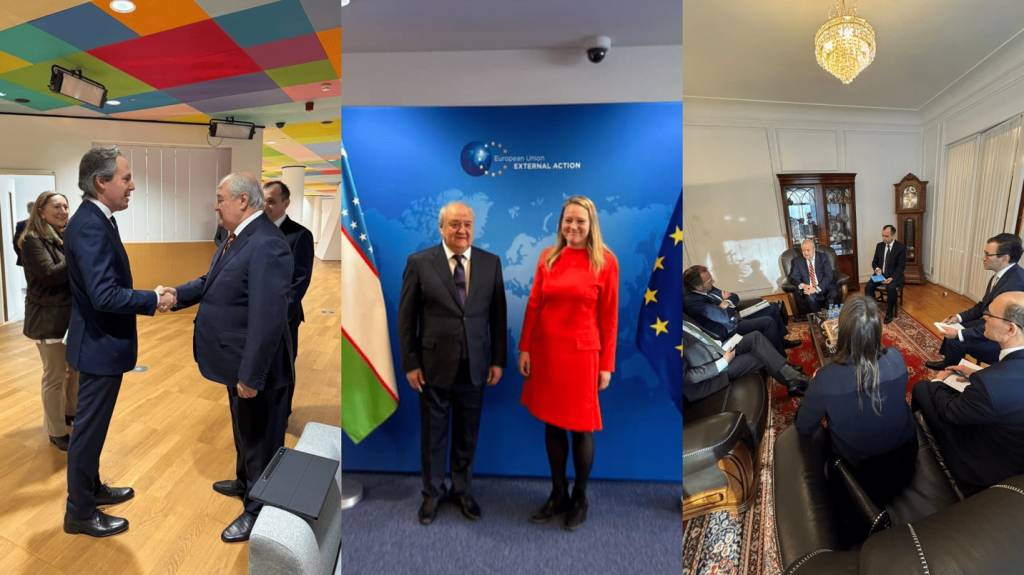WNAM REPORT: The Uzbekistan delegation, led by the Special Representative of the President on Foreign Policy, Abdulaziz Kamilov, held meetings in Brussels with European partners to discuss the current state of Uzbekisan’s cooperation with the EU, as well as the progress in preparing for the upcoming “Central Asia – European Union” summit.
During the visit, meetings were held with the Head of the Cabinet of the President of the European Council, Pedro Lourtie, the Head of the Cabinet of the High Representative of the Union for Foreign Affairs and Security Policy, Vivian Loonela, and the EU Counter-Terrorism Coordinator, Bartjan Wegter.
The meetings also included the participation of the Director of the International Institute for Central Asia, Javlon Vakhabov, as a member of the Uzbekistan delegation.
During discussions with Mr. Pedro Lourtie, the prospects for further developing interregional cooperation within the framework of the upcoming “Central Asia – European Union” summit, scheduled for April 3-4 in Samarkand, were examined.
At the meeting with Ms. Vivian Loonela, participants discussed the progress in implementing the 2019 EU Strategy for Central Asia and emphasized the importance of adapting it to current conditions, including expanding economic ties, promoting sustainable development goals, and strengthening regional security. The negotiations also focused on developing transport connectivity, notably the Trans-Caspian Corridor, which is designed to link Central Asia with Europe, enhance trade, investment, and digital connections, and increase regional economic connectivity.During the meetings, the EU Counter-Terrorism Coordinator, Bartjan Wegter, noted the practical significance of last year’s “Central Asia – European Union: A New Agenda for Security Cooperation” conference at IICA. He also emphasized that effective counterterrorism requires close cooperation at regional and international levels. Such platforms provide a unique opportunity to discuss mechanisms for joint action, exchange of experience, and mutual support among the parties.Following the meetings, practical proposals were formulated to enrich the agenda for the upcoming summit in Samarkand, focusing on expanding interregional cooperation, developing infrastructure, deepening trade and economic ties, enhancing security cooperation, and addressing global challenges.


